#SecurityScan 96: Khalistani Extremism, India-Maldives relations and much more
29 Oct 2024 12:09:29
This article is a summary of important events that have taken place in last one week affecting, India's national security.
NEWS IN BRIEF
Countering external & Internal Security Challenges
India Should Designate Canada as a State Sponsor of Terror
Escalating Tensions Between India and Canada
The ongoing diplomatic crisis between India and Canada has reached new heights, with Canadian Prime Minister Justin Trudeau accusing India of involvement in the June 18, 2023, killing of Khalistani terrorist Hardeep Singh Nijjar in Surrey, British Columbia. Trudeau's claim that India masterminded the killing, allegedly based on US intelligence, was quickly debunked. While US intelligence did provide Canada with raw data after Nijjar’s murder, Trudeau misrepresented it to bolster his accusation.
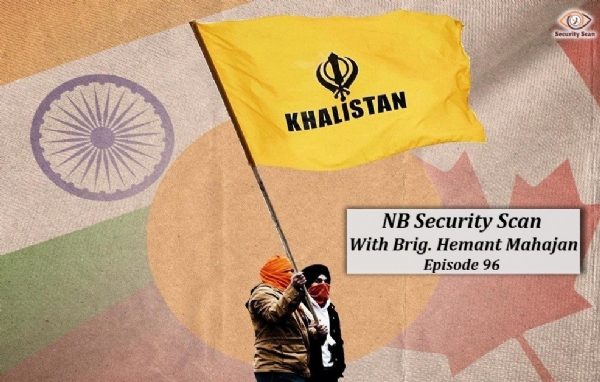
Khalistani Extremism: A Growing Threat
Khalistani militants, active in both Canada and California, are heavily involved in organized crime and gang violence. Historically, when US intelligence becomes aware of assassination plots, it alerts both allies and enemies. In this case, the chatter surrounding Nijjar’s murder was routine and non-specific. However, Trudeau's reckless mischaracterization of the situation has led to a significant diplomatic fallout with India.
Trudeau's Political Missteps and Domestic Backlash
Trudeau's false accusation has not only damaged Canada-India relations but also alienated his own citizens. After almost nine years in office, Canadians are growing increasingly frustrated with Trudeau's progressive virtue signaling and lack of competence. His administration has been plagued by draconian COVID-19 restrictions, economic instability, and corruption scandals. Trudeau’s latest misstep, aimed at securing votes from Sikh militants in key districts, has backfired.
Intelligence Misuse and Diplomatic Fallout
By misusing intelligence from the "Five Eyes" alliance for political gain, Trudeau has jeopardized Canada’s standing within the group. Both the Central Intelligence Agency (CIA) and the National Security Agency (NSA) were reportedly angered by Trudeau's attempt to manipulate them, as confirming or denying his claims could compromise sources and methods. This careless move has strained intelligence-sharing cooperation, putting Canada at odds with its allies.
Misunderstanding Religious Extremism
Trudeau’s failure to differentiate between religious extremism and legitimate religious practice has also contributed to the crisis. The United Kingdom’s Bloom Review on religious extremism, for example, highlights how Khalistani activists manipulate government ignorance to push their fringe agenda. The review concludes that pro-Khalistan activism has a negative impact on the wider Sikh community and should not be tolerated—an insight that Trudeau has ignored.
Canada's Permissiveness Toward Terrorism
By allowing Khalistani militants to operate freely, Trudeau has once again spotlighted Canada’s role as a safe haven for terrorism. Both Trudeau and his father, Pierre Trudeau, have historically turned a blind eye to Khalistani militancy, allowing it to flourish in Canada. This lax attitude has resulted in Canada becoming a base for terror financing and operations directed from abroad.
The Hypocrisy of Western Governments
The selective approach to designating state sponsors of terrorism is evident. While countries like Iran and North Korea are frequently called out for their involvement in terrorism, the West often turns a blind eye to similar behavior within its own borders. This hypocrisy undermines global efforts to combat terrorism. Canada, by sheltering Khalistani extremists, is guilty of the same actions it condemns in others.
The Case for Designating Canada as a Terror Sponsor
Given the long history of Khalistani terrorism, including the deadly Air India Flight 182 bombing, Canada can no longer claim ignorance about the movement's violence. If left unchecked, the Khalistani extremists in Canada could become as lethal as Al Qaeda. Canadian banks, much like the hawala networks used by Al Qaeda, are complicit in financing these terrorist activities.
A Global Call for Accountability
While many countries are taking steps to close loopholes and crack down on illicit funding, Canada appears to be moving in the opposite direction. Countries like Turkey, Pakistan, and Iran have long been criticized for their support of terrorism, and now Trudeau’s Canada risks joining their ranks. To strengthen global institutions and hold countries accountable, India should consider designating Canada as a state sponsor of terrorism for its protection of Khalistani militants.
Time for Action
The West’s tendency to overlook its own complicity in terrorism undermines global anti-terrorism efforts. India, by designating Canada as a state sponsor of terror, can send a powerful message. Financial crackdowns, arrests, and extraditions—not political posturing—are the true paths to defeating terrorism. If Canada wishes to avoid further scrutiny, it must enact substantive reforms and cease its support for Khalistani militants.
The Consequences of Canada's Support for Khalistani Extremists: A Diplomatic and Security Crisis
Sikh Militancy in North America
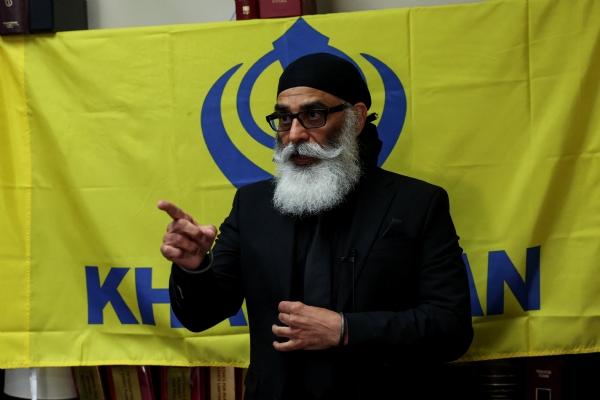
Sikh militants in both Canada and California have been linked to organized crime and gang violence. When the United States has information regarding imminent assassinations, it generally warns both allies and adversaries. For example, over two decades ago, the U.S. warned Iran's Supreme Leader Ali Khamenei about an assassination plot. However, in Nijjar’s case, U.S. intelligence merely provided Canada with routine and indiscriminate communications, not a clear warning about India’s involvement.
Trudeau's attempt to justify his hasty accusations by claiming U.S. endorsement sparked diplomatic fallout. He doubled down, suggesting his government’s actions were based on solid intelligence, though it became increasingly clear this was not the case.
Trudeau's Political Struggles
After nearly nine years in power, Trudeau's administration faces widespread criticism from Canadians, who are frustrated by economic challenges, COVID-19 restrictions, and corruption scandals. Trudeau may have hoped that his accusations against India would bolster his support among Sikh voters in key constituencies. However, his missteps have only worsened his political standing. Polls now show him trailing his conservative rivals by a significant margin.
Misuse of Intelligence and Ignorance of Religious Extremism
Trudeau has shown a lack of understanding by confusing religious militancy with legitimate faith. In contrast, the U.K. has taken proactive steps to address religious extremism. For instance, the Bloom Review, commissioned by the U.K. government, highlighted how Khalistani extremists have used government ignorance to promote their fringe ideology, warning against their disruptive influence on the broader Sikh community.
Canada as a Safe Haven for Khalistani Terrorists
Trudeau’s missteps have brought attention to Canada's longstanding permissiveness toward Khalistani terrorism. Both Justin and his father, Pierre Trudeau, have allowed Canada to become a sanctuary for Khalistani militants, enabling terror financing for a cause directed from afar.
Canada's Role in Global Terror Finance
Despite the devastating 1985 Air India bombing carried out by Khalistani terrorists, Canada continues to allow the movement to flourish. Khalistani extremists could pose as significant a threat as Al Qaeda if left unchecked, especially given the financial support they receive. Canadian banks have been complicit in allowing funds to flow to these militants, just as some hawala agents facilitated financial transfers for Al Qaeda’s attacks in the 1990s and early 2000s.
Unfortunately, Trudeau’s policies now place Canada in the same category as these countries, aligning it with states that are unwilling to confront extremism within their borders.
A Call for Objectivity in Addressing Terrorism
The solution to terrorism lies in financial crackdowns, arrests, and extraditions, not empty political posturing. For the West to regain credibility, countries like Canada must take substantive action to address the extremism they have allowed to grow unchecked.
Addressing Punjab's Fiscal Crisis
The Punjab government has appointed Arbind Modi, a seasoned former IRS officer, as Chief Adviser on Fiscal Affairs, and Sebastian James from Duke University, to tackle its pressing financial challenges. Their appointment signals the state’s acknowledgment of the severity of its economic problems and the need for expert intervention. Both advisors are entrusted with steering Punjab away from the brink of fiscal collapse by addressing deep-rooted financial issues, including soaring debt, inadequate capital expenditure, and the challenge of meeting basic financial obligations.
Punjab’s Dire Fiscal Health
Punjab’s financial situation is alarming. A substantial portion of the state's revenue is consumed by debt repayment and loan servicing, leaving limited funds for essential services. Despite efforts to increase revenue through measures such as higher VAT on fuel, increased property registration fees, and raised bus fares, the state continues to struggle financially. A recent plea to the central government for an additional borrowing limit of ₹10,000 crore reflects the severity of the crisis. Furthermore, delays in receiving crucial funds under central schemes like the Rural Development Fund and the National Health Mission have only worsened Punjab’s fiscal woes.
The Road to Economic Recovery
Reviving Punjab’s economy will require more than technical expertise; it demands political skill and innovative strategies to secure essential financial support from the central government. While recent efforts towards fiscal prudence are commendable, the real challenge lies in balancing revenue generation with sustainable development.
India Reinforces Ties with Southern Neighbors
The recent visits of Maldivian President Mohamed Muizzu to New Delhi and External Affairs Minister S Jaishankar to Sri Lanka underscore India's active engagement with its southern neighbors. These diplomatic overtures aim to strengthen bilateral relations and address shared challenges.
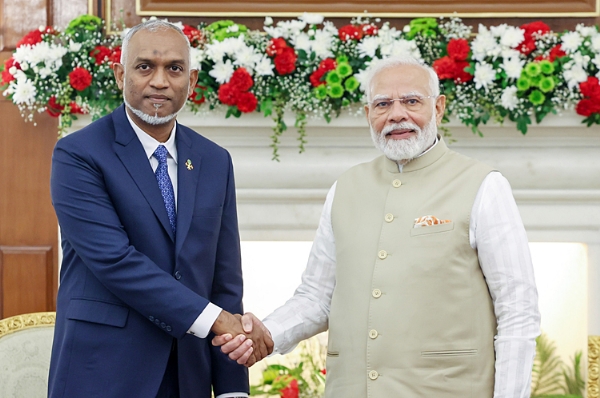
Maritime Security and Defense Cooperation
A notable feature of India's Vision Statement with the Maldives is its emphasis on maritime security, a topic not explicitly addressed in the nation-specific aspects of economic cooperation with Sri Lanka. This reflects India's growing concern for regional security and its commitment to assisting the Maldives in enhancing its defense capabilities.
The Vision Statement ensures that India's military personnel will not be stationed on Maldivian soil without explicit agreement, addressing concerns raised by domestic critics of the previous government. This move has helped to alleviate political tensions and foster trust between the two countries.
Economic Cooperation and Infrastructure Development
India has offered substantial financial assistance to the Maldives, including a $750 million currency swap agreement. This support aims to alleviate the country's economic difficulties and strengthen bilateral trade ties.
In addition, India has pledged to invest in export-oriented industries in Sri Lanka, particularly in the energy sector. This is expected to boost Sri Lanka's economy and reduce its dependence on imports.
Cultural Exchange and People-to-People Ties
India and the Maldives have also focused on strengthening cultural exchange and people-to-people ties. The opening of new consulates in Addu City and Bengaluru will facilitate travel and trade between the two countries.
Shared Challenges and Regional Cooperation
Both India and the Maldives face common challenges, such as climate change and maritime security. By working together, these countries can address these issues more effectively and promote regional stability.
Goodbye, Ratan Tata: An Industrialist, Not Just a Businessman
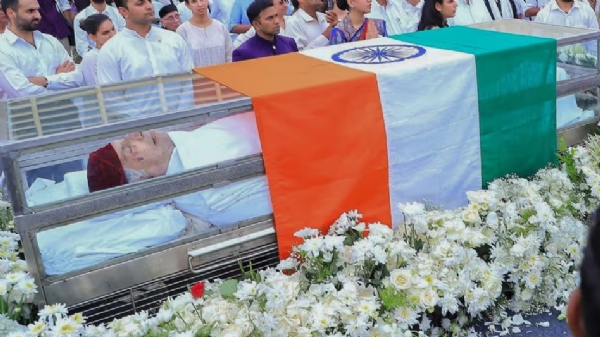
Ratan Tata, Chairman Emeritus of Tata Sons, will be remembered for far more than the global expansion of his conglomerate. His legacy transcends business success and touches upon his character and words, which, like a timeless poem, will outlive both the poet and the moment.
A Leader Who Made a Lasting Impact
On Thursday, Ratan Tata, one of India’s most iconic industrialists, passed away in a Mumbai hospital due to age-related ailments. He was 86 years old. His leadership of Tata Sons, from 1991 to 2012, saw the transformation of the group into a global powerhouse with landmark acquisitions such as Jaguar Land Rover and Corus Steel. But beyond business, Tata will be remembered for his values – his commitment to ethics, corporate governance, and transparency – which earned him the Padma Bhushan (2000) and Padma Vibhushan (2008), India's third and second highest civilian awards, respectively.
A Visionary Who Expanded Boundaries
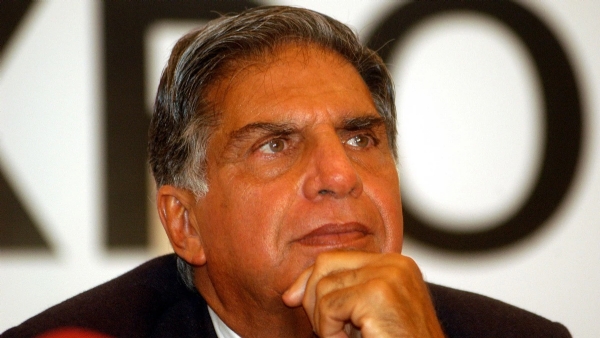
Ratan Tata’s chairmanship was defined by his bold vision for Tata’s global growth. He introduced ideas that redefined the market, such as the Nano car, a concept aimed at fulfilling the dreams of many Indians who aspired to own a car. Although the Nano did not succeed commercially, the innovation behind it captured the imagination of millions. His determination to accomplish what others believed impossible was a recurring theme throughout his career. As Tata once said, “The greatest pleasure I’ve had is trying to do something that everybody says could not be done.” This mindset was exemplified in the development of the Indica, India’s first car made entirely with domestic resources. Despite skepticism, the Indica became a success, winning a significant market share and proving Tata’s vision correct.
A Man of Patience, Consistency, and Character
One of Ratan Tata’s enduring contributions was his patient and consistent approach to building a legacy. His belief that “slow success builds character, fast success builds ego” was a guiding principle for his leadership. His personal demeanor—his humility, simple dressing, and integrity—echoed this sentiment. Across political and social divides, Tata was respected by politicians, businessmen, workers, and ordinary citizens alike. The Tata brand’s organic growth under his leadership was not only a result of business acumen but also of a deep moral compass that distinguished him from others in the corporate world.
A Legacy That Outshines Time
Many empires and businesses rise and fall over time, but the values that Ratan Tata stood for make his legacy unique. Shakespeare's words from Sonnet 55 come to mind, where he suggests that one's legacy can outshine even the most impressive monuments: “Your legacy will shine more brightly than unswept stone besmeared with sluttish time.” Tata's enduring influence, rooted in character rather than mere commerce, ensures that he will not be forgotten.
A Fitting Tribute
“Nature might stand up and say, this was a man.” There could be no more fitting line for a man whose legacy of integrity, leadership, and humanity will live on for generations to come
#COUNTERING CHINESE MULTI DOMAIN , GREY ZONE, HIGH BREED WARFARE
China's Failing Soft Power
China's quest for global influence through soft power faces significant challenges. Without changing its attitude toward its citizens, neighboring countries, and the people of occupied regions, Beijing may continue to struggle with a soft power deficit. Joseph Nye, the pioneer of the "soft power" concept, explains in his book A Life in the American Century how China's attempts to increase its global appeal are limited by its domestic and foreign policies.
The Origins of China’s Soft Power Struggles
Long before Nye introduced the concept of soft power, China had already lost much of its global goodwill. After the Chinese Communist Party (CCP) took over, it embarked on a series of aggressive territorial expansions, including the occupation of East Turkestan, Tibet, and southern Mongolia. These invasions, coupled with its involvement in the Korean War and the 1962 Sino-Indian War, permanently damaged China's international image. Domestically, the CCP's Great Leap Forward led to famine, and the Cultural Revolution further alienated the Chinese people, deepening the soft power crisis.
Tibet: A Lingering Issue
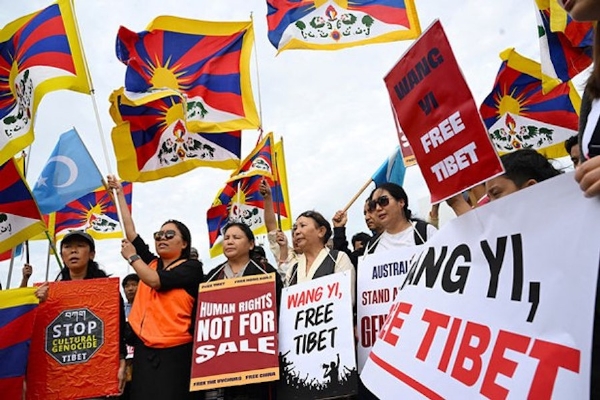
For decades, the CCP believed that economic development in Tibet would win the hearts of the Tibetan people. However, the protests of 1987-89 and the 2008 uprising in Tibet shattered this illusion. In response, China began producing white papers to counter international criticism, but reports from organizations like Freedom House, Amnesty International, and Human Rights Watch (HRW) continue to highlight human rights violations in Tibet. Furthermore, the forced relocation of over 700,000 Tibetans and the colonial-style boarding schools for Tibetan children have drawn global attention, severely tarnishing China’s soft power aspirations.
Human Rights Abuses in East Turkestan
The situation in East Turkestan (Xinjiang) presents a similar challenge for China. The systematic detention of millions of Uyghur Muslims in internment camps has attracted widespread international condemnation. Reports, such as those from the Tibet Action Institute and HRW, highlight China's brutal policies toward ethnic minorities, further damaging its global reputation. These ongoing abuses undercut China's efforts to portray itself as a responsible global superpower.
Domestic Challenges to Soft Power: The Case of Tiananmen and COVID-19
Soft power not only depends on international relations but also on how a nation is perceived by its own people. The CCP faces a delicate balancing act in maintaining control while trying to charm both domestic and international audiences. The brutal suppression of the Tiananmen Square movement in 1989 earned China global condemnation, and economic repercussions followed. Similarly, China's mishandling of the COVID-19 pandemic has further alienated its citizens, as demonstrated by the viral reaction to Dr. Li Wenliang’s death on Chinese social media. Post-pandemic, a Pew Research Center poll revealed that negative views of China had increased by double digits in more than half of the surveyed countries.
Territorial Disputes: Strained Relations with Neighbors
China has one of the highest numbers of unresolved territorial disputes with its neighboring countries. Its ongoing border issues with India and aggressive maritime claims in the South China Sea have earned it a reputation as a regional bully. A 2023 Pew Research Center survey shows that a median of 71% of adults across 24 countries believe China does not contribute to global peace and stability, while 76% feel that China disregards the interests of other nations. As a result, China struggles to maintain positive relations with its neighbors, further weakening its soft power.
Mistrust of China has only deepened under Xi Jinping’s leadership, as Conclusion
China’s foreign policy has become increasingly confrontational and aggressive.
Despite its massive investments in infrastructure and security, the CCP has been unable to win the hearts and minds of the Tibetan people. Its continued crackdown on Tibetan culture and religion only worsens the situation. Similarly, China's human rights abuses, territorial disputes, and internal repression further erode its global image. As David Shambaugh argues, soft power comes from society, not from government propaganda. Unless China changes its approach toward its own people and its neighbors, it will continue to suffer from a soft power deficit. In short, Beijing's efforts to build a lovable and respected image are likely to remain unfulfilled.
WORLD AT WAR:LESSONS FOR INDIA
The Rise of Private Intelligence Companies
In today's digital age, private intelligence companies have emerged as formidable players in the world of espionage. With their access to vast amounts of data and advanced technology, they are competing with state agencies and transforming the traditional landscape of intelligence gathering.
The Democratization of Intelligence
As Dan Geer, a computer security analyst, predicted in 2014, the proliferation of digital data has made it possible for anyone to access information once exclusive to government agencies. The 2021 incident involving Chinese spies infiltrating the Indian power grid is a stark example of how private companies can now uncover and monitor such attacks.
The Power of Data

Private intelligence firms like Recorded Future leverage advanced data analysis techniques to track and disrupt malicious activities. By scraping data from the dark web, analyzing images, and extracting text from corporate records, they can uncover hidden patterns and threats.
The New Face of Espionage
The digital revolution has fundamentally changed the nature of espionage. Covert operations that once required physical infrastructure and human agents can now be conducted virtually. The widespread surveillance networks created by CCTV cameras and other digital technologies have made it more difficult for intelligence agencies to operate.
The Dark Web and Deep Web
The deep and dark web, parts of the internet that are not indexed by search engines, offer a degree of anonymity that attracts criminal and extremist groups. However, even this anonymity is not absolute. Companies like Flashpoint use advanced techniques to infiltrate these online communities and gather intelligence.
The Surveillance Giants
Major technology companies like Google, Microsoft, and Amazon have become unintentional intelligence agencies due to their vast data collection capabilities. These companies possess unprecedented insights into network traffic, enabling them to track and monitor the activities of adversaries, including state-sponsored hacking groups.
Conclusion
The rise of private intelligence companies marks a significant shift in the landscape of espionage. As the digital world continues to expand, these companies will play an increasingly important role in national security and intelligence operations.
How Well Are Israel and Iran Positioned for an All-Out War?
Israel's Strategic Neutralization of Threats
In recent years, Israel has effectively weakened key Iran-backed militant groups. Hamas in Gaza has been significantly neutralized. Israel has also focused on degrading Hezbollah's leadership and capabilities in Lebanon through intelligence-driven strikes. The U.S. has played a supporting role, targeting Houthi rebels in Yemen, a group aligned with Iran.
These coordinated efforts have inflicted serious damage on Iran’s proxies, though they are far from eradicated.
Increasing Threats from Iran
The risk of an all-out war has escalated following recent Iranian missile strikes against Israel. Israel is under pressure to retaliate, which could push both nations towards a broader conflict. The United States has increased its military presence in the region, underscoring the severity of the situation. Both Israel and Iran are recalculating their strategies as tensions mount.
Israel-Hezbollah Conflict
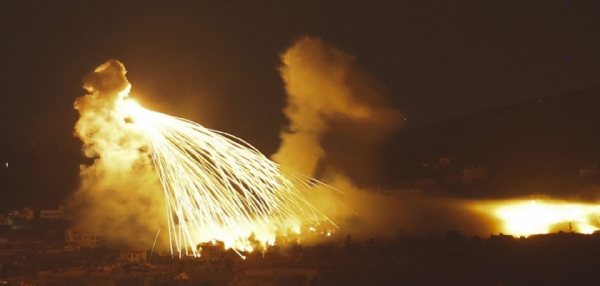
The conflict between Israel and Hezbollah has intensified dramatically. The number of violent incidents has surged, with Israeli intelligence successfully disrupting Hezbollah’s communications and leadership. Notably, Israel killed Hezbollah’s leader Hassan Nasrallah in a September 2024 airstrike. In response, Iran launched ballistic missiles at Israel, marking its direct involvement in the conflict. Israel has also deployed ground forces in southern Lebanon, increasing the scale and intensity of military operations.
Iran’s Military Posture-Calculated Caution
Iran’s missile strikes against Israel in October 2024 were intended as a face-saving measure following Israel’s targeted killings of high-ranking IRGC members. Despite its aggressive posture, Iran appears reluctant to escalate the conflict into a full-scale war due to Israel’s superior military capabilities and U.S. backing. A broader conflict could severely damage Iran’s economy, destabilize its regime, and lead to military defeats.
Hezbollah’s Dependence on Iran
Since its establishment with the help of Iran’s IRGC, Hezbollah has relied heavily on Iranian financial and military support. However, Iran’s weakened military response to Israeli attacks highlights its limitations. Although Hezbollah counts on Iranian support, Tehran’s weakened conventional military and distance from the battlefield hinder its ability to fully back Hezbollah.
Israel's Military Dominance
Superior Military Capabilities
Israel’s military is the most powerful in the region. Its advanced defense industry, combined with decades of combat experience, gives Israel a formidable edge. Israel’s defense budget, its advanced missile defense systems (including Iron Dome and Arrow), and its longstanding security relationship with the U.S. further cement its superiority. Israel’s nuclear capabilities, while unconfirmed, also act as a deterrent against large-scale Iranian aggression.
Targeted Killings and Asymmetric Warfare
Israel has a history of using targeted killings and other tactics in asymmetric warfare. The Hannibal Directive, aimed at preventing the capture of Israeli soldiers, and the Dahiya doctrine, which endorses disproportionate force to cripple enemy infrastructure, are examples of Israel’s military approach. These strategies have been successful in neutralizing key threats while minimizing Israel's own losses.
Iran’s Vulnerabilities
Iran’s Military Shortcomings
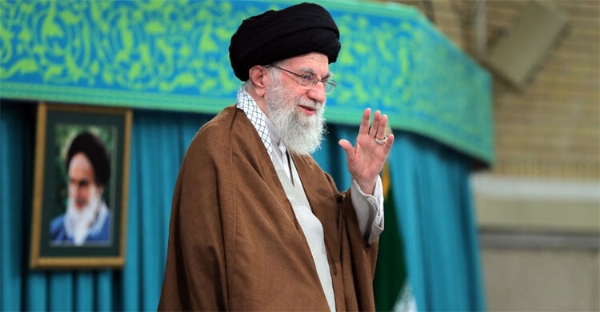
Iran’s military, though sizable, lacks the technological sophistication of Israel’s forces. Iran has made significant strides in developing ballistic missiles and drones. Its missile arsenal is the largest in the Middle East, but Iran’s air force and naval capabilities lag behind Israel’s. Iran is also heavily reliant on Russian and Chinese support to bolster its military.
Threat of Israeli Retaliation
Any Israeli attack on Iran’s nuclear sites would have global repercussions and could push the region into deeper conflict.
A Fragile Balance
Russia and China are key players with vested interests in the Middle East. Both countries would prefer to see the U.S. diverted by another conflict but do not wish to be dragged into a war.
Both Israel and Iran are preparing for the possibility of an all-out war, but neither side seems eager to take the final step toward open conflict.
--